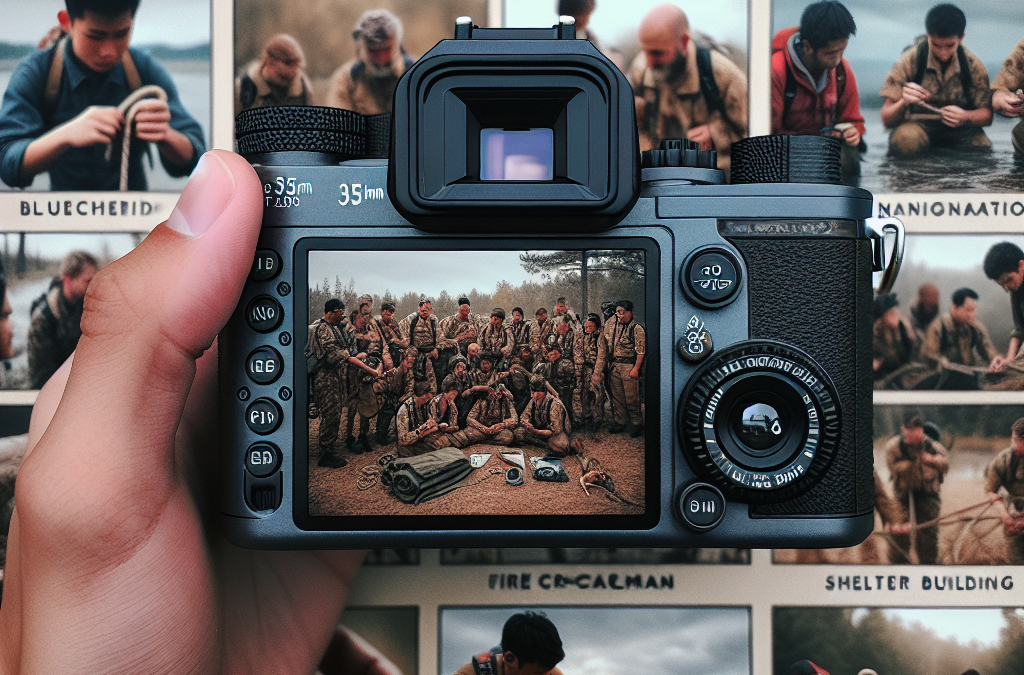Diverse Skill Sets Enhance Flexibility
Understanding Cross-Training
Cross-training in survival skills is all about diversifying the abilities you can call upon. It’s like not putting all your eggs in one basket! When you’re out in the wild, relying on a single skill can be limiting. For instance, if you’re a pro at building fires but can’t navigate back home, you might find yourself in a sticky situation. That’s why mixing it up is key.
From my own experience, I’ve found that learning to forage for food complements my navigational skills beautifully. When I can recognize edible plants while knowing how to read the terrain, my chances of survival soar. The more skills you have under your belt, the quicker you can adapt to any curveball nature throws at you.
Plus, diversifying your skill set keeps things interesting. Instead of getting bored with the same routine, you’re constantly challenging yourself, which helps to solidify what you learn. After all, who wants to be stuck in a rut when learning about survival can be so much fun?
Building Confidence Through Mastery
Practice Makes Perfect
One of the coolest things about cross-training is the confidence it builds. I remember the first time I successfully started a fire using only my surroundings—it was a euphoric moment! By learning various techniques, from friction-based methods to modern fire starters, I felt capable and ready for anything.
When you’ve invested the time to master different skills, it boosts your survival mindset. Suddenly, situations don’t seem so overwhelming. For instance, if you’re lost in the woods, having multiple navigation techniques under your belt reduces panic and increases problem-solving abilities.
Confidence isn’t just about knowing what to do; it’s also about trusting yourself to pull it off. I’ve found that the more I practice, the more I trust my instincts, which is vital when you’re out there facing the great unknown.
Thank you for reading this post, don't forget to subscribe NOW for FREE!
Adapting to Different Environments
The Value of Versatility
Let’s face it: nature doesn’t always play nice, and environments can vary wildly. Cross-training allows me to adapt my skills to whatever situation I find myself in. Whether I’m hiking in the mountains or camping by a lake, having a range of survival skills ensures I’m prepared for any scenario.
For example, in a forested area, my skills in shelter building and food foraging come in handy. But if I find myself near a body of water, knowing how to fish or purify water moves to the forefront. It’s like having my own toolkit of awesomeness, and I get to choose the right tool for the job!
Being adaptable doesn’t just help in survival situations; it enhances my enjoyment of nature, too. I mean, who wouldn’t want to be the person who can whip up a meal on a camping trip or navigate back to camp when the sun sets?
Collaborative Learning Opportunities
Learning with Others
One of the best parts of cross-training in survival skills is how much you can learn from others. During group adventures, I’ve picked up countless tips and tricks from fellow enthusiasts. It’s an amazing way to not only enhance your own skills but also build camaraderie.
Take a wilderness survival course, for example; you’re bound to meet people with diverse backgrounds. Whether it’s a military veteran or a nature guide, everyone has something unique to offer. These collaborative experiences are invaluable, and they often lead to lifelong friendships.
Additionally, sharing skills with friends can reinforce what you’ve learned. Teaching someone else is a great way to deepen your understanding. When you explain how to build a shelter or start a fire, it solidifies your knowledge, while also fostering a sense of community around essential skills.
Preparing for the Unexpected
The Reality of Survival Situations
Finally, life is unpredictable. Cross-training helps prepare you for unexpected circumstances by arming you with a stash of survival skills. Trust me when I say it’s not just about ‘if’ something goes wrong, but ‘when.’ Being prepared can make all the difference in critical moments.
I remember a backpacking trip where a sudden storm hit. Having cross-trained in both navigation and emergency shelter building meant that instead of freaking out, I could act swiftly. Understanding how to identify shelter materials and create a safe space proved invaluable at that moment.
Each experience adds to your arsenal, making you better equipped to handle surprise situations. The more flexible and knowledgeable you are, the more effectively you can respond. This level of preparedness can turn anxiety into action—a huge win for any survivalist!
FAQs about Cross-Training in Survival Skills
1. What is cross-training in survival skills?
Cross-training in survival skills refers to the practice of diversifying your knowledge and abilities to enhance your survival capabilities in various situations. Instead of focusing on just one area, it encourages learning multiple skills to adapt to different environments.
2. How does cross-training improve confidence?
Confidence in survival situations often stems from practice. When you master a variety of skills, you feel more capable of handling unexpected challenges. This trust in your abilities can reduce panic and improve your decision-making in critical moments.
3. What are some examples of survival skills to cross-train?
Some examples include navigation techniques, fire-starting methods, shelter building, foraging for food, and water purification. Learning a mix of these skills ensures that you’re prepared for whatever nature throws your way.
4. Can cross-training be done solo or in a group?
Absolutely! While you can certainly learn on your own through books and practice, joining a group can enhance your learning experience through shared knowledge and skills. It’s also a great way to build a community of fellow survival enthusiasts!
5. Why is adaptability important in survival skills?
Adaptability is crucial because survival situations can change rapidly. By having a range of skills, you can adjust your approach based on the specific environment and challenges you encounter, increasing your chances of survival and success.






